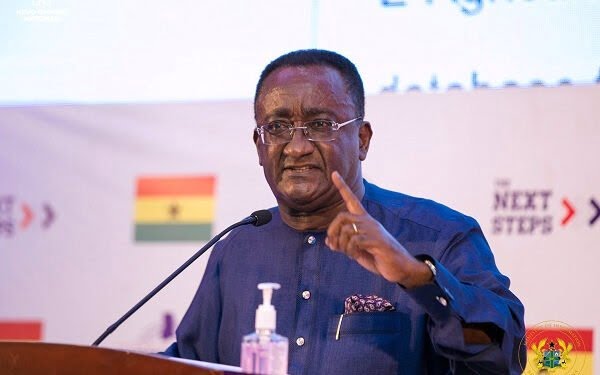The Chamber of Agribusiness Ghana has prevailed on the Ministry of Food and Agriculture and the Ministry of Trade and Industry to urgently facilitate the procurement of fertilisers and agrochemicals for the 2022 and 2023 seasons to forestall a possible food shortage in the country.
The chamber has admitted that soaring natural gas prices have forced the closure of two large United Kingdom fertiliser plants, thereby sparking warnings of a looming shortage of ammonium nitrate that could hit food supplies as record energy prices start to reverberate through the global economy.
Mr Anthony Selorm K Morrison, the Chief Executive Officer of the Chamber, made this appeal in a statement released in Accra.
Below is the full statement:
GLOBAL FERTILISER CRISIS PRESENT THE WORST THREAT TO OUR FOOD SECURITY AND AGRICULTURE GAINS. IMMINENT GLOBAL FOOD PRICE HIKES FROM THE FIRST QUARTER OF 2022.
The fertiliser space has become very scary at the moment, as it becomes scarcer, especially as governments get in the way.
Robust demand puts the future of food production at a greater risk and Ghana is not immune from this threat.
Fertiliser enables large scale food production and optimises crop yields. Unfortunately, fertiliser is currently in short supply, especially fertilisers of the synthetic variety primarily due to the soaring gas prices.
Soaring natural gas prices has forced the closure of two large UK fertiliser plants, sparking warnings of a looming shortage of ammonium nitrate that could hit food supplies as record energy prices start to reverberate through the global economy.
At those rates, it is costing fertiliser manufacturers a lot more to produce, and they cannot purchase natural gas at the current price to produce and make profit.
Yara, a leading producer of fertiliser explains that prices are rising “everywhere”: whether it is nitrogen fertiliser, phosphate fertiliser, or potassium fertiliser, prices are increasing.
The cause of these increases is quite diverse; according to the producer, it has to do with increases in the prices of raw materials, particularly, natural gas.
In the US, cold weather across the south put a massive strain on the available supply of natural gas, a critical component involved in the creation of two widely used synthetic fertilisers – ammonia and urea.
Major exporting countries like China and Russia have reduced their exports or are holding onto their own supply
China has banned the export of phosphate, a major component of commercial fertiliser, through 2022.
Russia will only permit 5.9 million tons (Mt) of nitrogen fertiliser and 5.35Mt of fertilisers export in the next 6 months.
Implications on Ghana’s food system
Food inflation is imminent. As a net importer of fertiliser with no manufacturing capacity, the shortage is expected to drive up fertiliser prices, which increases a major component of farmers crop budget:
1. Food prices, especially grains and cereals are expected to increase significantly from the first quarter of 2022 through to the second quarter of 2023. Cereals and grains will see a surge between 30 and 45 per cent with a higher percentage increase in the urban areas within the same period.
2. Crops yield for the 2022 season is expected to remain stable or decline relative to 2021. The high cost of fertiliser will likely ration fertiliser use and or reduce area cultivated by commercial and smallholder farmers. Total food production, especially grains and cereals are likely to miss projected growth in the 2022 season.
Key Recommendations:
1. MOFA and MOTI to urgently facilitate procurement of fertiliser and agrochemicals for the 2022 and 2023 seasons.
2. A review of the input subsidy to extend through to 2022
3. Collaborative efforts needed to identify and curb possible artificial fertiliser shortage
4. Support and promote the production and use of organic fertiliser
5. Expedite steps to start synthetic fertiliser production in Ghana
Kofi K. Nyanteng
Director, M&E and Climate Change Chamber of Agribusiness, Ghana
Signed,
Mr Anthony Selorm K Morrison
C.E.O, of Chamber Agribusiness Ghana.
Source: classfmonline.com


